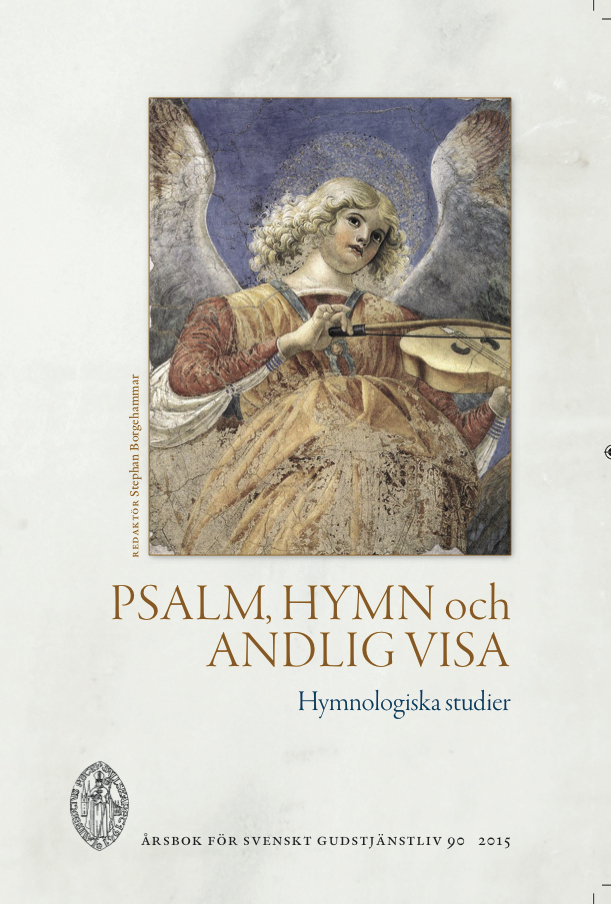”Som om orden handlade om mig”. En modell för analys av psalmtexter som används i begravningsgudstjänster
Abstract
In this article, I examine the possible functions of hymn texts that are used in funeral services in the Church of Sweden, specifically when they pertain to motifs of disorientation and new orientation.
There is general agreement that existential questions are owned and shared by all people. From a pastoral point of view, to work towards a mutually communicative funeral service – where the mourners, regardless of faith, are met with respect, warmth and the possibility to participate – is paramount. People who relate to one another and God strengthen the funeral service’s chief virtue: its ability to transcend boundaries, which in turn can provide meaning during a difficult life event.
The three hymns studied in detail here are among the most frequently used in or recommended for funerals in Sweden: Var inte rädd (”Do not be afraid”), Härlig är jorden (”Glorious is the earth”) and Stad i ljus (”City in light”). Each hymn is introduced briefly, then a textual analysis is performed based on a model where three motifs found in the Biblical Psalms according to Walter Brueggemann – confident orientation, painful orientation and surprising new orientation – meet three dimensions: the human being, life and God. This analysis is followed by a section where possible functions of the hymn at a funeral are discussed.
The conceivable functions of these hymns in funeral services can be summarized in the following way. Generally speaking, they describe disorientation using a delicate language that quickly leads to new orientation and trust. One gets a feeling of a repressed, controlled need. God is described as present and known; therefore, prayer is natural, safe and heartfelt. The wording in the hymns can in several cases be interpreted from two perspectives, both that of the deceased and that of the mourners. The hymns’ description of life as a struggle makes fellowship with other people essential. That struggle also pushes people to reach towards someone or something that is beyond them, which guarantees a goal, a hope for the future and that life is not over upon death. The journey as a theme leads into a future that is certain.
A possible function of hymns in a funeral context that is absent is asking questions about the unknown God. Doubt is only vaguely expressed. There is a lack of organic wording about that which is very difficult, about anger, becoming lost, or grave disappointment.
Downloads
Publicerad
Nummer
Sektion
Licens
© författarna, Laurentius Petri Sällskapet för svenskt gudstjänstliv samt Artos & Norma bokförlag. Det är tillåtet att kopiera och använda material ur Svenskt Gudstjänstliv för forskningsändamål om källan anges. För övriga ändamål kontakta respektive artikelförfattare samt förlaget. Särskilda restriktioner kan gälla för bildmaterial.


